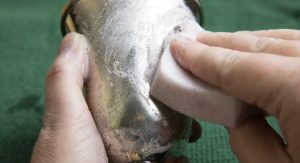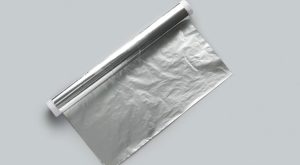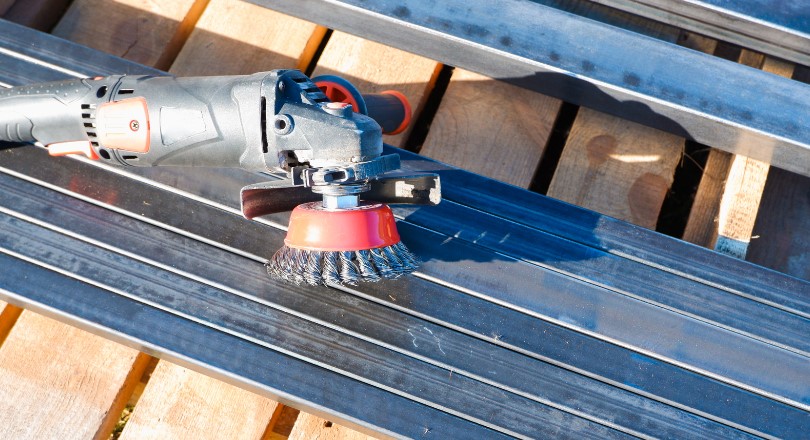Ah, the frustrating sight of rust slowly creeping onto your beloved metal possessions. Whether it’s a trusty tool in your workshop or a cherished antique passed down through generations, tackling rust is an essential skill for any DIY enthusiast or homeowner. But fear not! This blog post shares five tried and true methods on how to clean off rust from metal and restore your metal items to their former glory.
From common household ingredients like baking soda and vinegar to unexpected solutions like potatoes and lemon juice, we’ve covered you with effective ways to remove rust. Plus, we’ll shed some light on the difference between tarnish and rust so you can identify the problem at hand. So grab your gloves, and let’s dive into these easy yet powerful techniques for cleaning off rust from metal!
How to Clean Off Rust from Metal?

5 Tried and True Methods
1. Baking Soda – A Versatile Rust Remover
Baking soda, a common household item, is an effective and versatile rust remover. Its abrasive properties make it perfect for scrubbing away rust stains. Mix baking soda with water, apply a paste to the rusty surface, and let it sit for a few hours before scrubbing off the rust with a brush or sponge. It’s an affordable, eco-friendly solution that can restore your metal items to their former glory!
2. Vinegar Bath – A Powerful Rust Remover
One effective method to clean off rust from metal is using a vinegar bath. Soak the rusty item in a mixture of equal parts vinegar and water for several hours or overnight. The acidity of the vinegar helps dissolve the rust, making it easier to scrub away. Remember to rinse and dry thoroughly afterward!
3. Potato and Dish Soap – A Surprising Rust Remover
Believe it or not, a simple potato combined with dish soap can work wonders on rusted metal. Cut a potato in half and dip the cut side into some dish soap. Rub the potato onto the rusty surface, applying gentle pressure. The natural acidity of potatoes combined with the cleaning power of dish soap helps break down rust particles, leaving your metal looking clean and shiny once again.
4. Citric Acid – A Powerful Rust Remover
Citric acid is a natural, non-toxic substance that removes rust from metal surfaces. It breaks down the iron oxide, making it easier to scrub away. Mix the citric acid powder with water to create a paste or solution, then apply it to the rusty area and let it sit for a few hours. Afterward, scrub off the rust using a brush or sponge. Citric acid is especially useful for removing rust from smaller items like tools or kitchen utensils.
5. Lemon and Salt – A Dynamic Duo for Rust Removal
Combining lemon and salt is a powerful remedy for removing rust from metal surfaces. The citric acid in the lemon dissolves the rust, while the abrasive nature of salt helps scrub it away. Squeeze some lemon juice onto the rusty area, sprinkle salt over it, and let it sit for a few hours. Then, use a scrub brush or sponge to remove the rust gently. This natural method is both effective and environmentally friendly!
| How to Clean Off Rust from Metal | |
| Method | Description |
| Baking Soda |
Mix with water to create a paste, apply it to the rusty surface, let it sit for a few hours, then scrub off the rust with a brush or sponge
|
| Vinegar Bath |
Soak the rusty item in a mixture of equal parts vinegar and water for several hours or overnight to dissolve the rust, then rinse and dry thoroughly
|
| Potato and Dish Soap |
Cut a potato in half, dip the cut side into dish soap, rub it onto the rusty surface with gentle pressure to break down rust particles effectively
|
| Citric Acid |
Mix citric acid powder with water to create a paste or solution, apply to the rusty area, let it sit for a few hours, then scrub off the rust with a brush or sponge
|
| Lemon and Salt |
Squeeze lemon juice onto the rusty area, sprinkle salt over it, let it sit for a few hours, then use a scrub brush or sponge to remove the rust gently, an eco-friendly and effective method
|
Tarnish Vs. Rust

Understanding the difference between tarnish and rust in metal corrosion is important. Tarnish is a surface discoloration caused by chemical reactions with air or moisture, while rust results from iron or steel oxidation. Both can be unsightly and damaging, but knowing which one you’re dealing with will help you choose the right cleaning method.
5 Easy Ways to Remove Rust
1. Fiber Wheels
Fiber wheels are a great tool for removing rust from metal surfaces. They are made of abrasive fibers that scrub the rust without damaging the underlying metal. Attach the fiber wheel to a power drill and gently buff away the rust, revealing a clean and shiny surface. It’s an easy and efficient method for restoring your metal items to their former glory!
2. Rubber Polishing Abrasive
Rubber polishing abrasives are great tools for removing rust from metal surfaces. These abrasive blocks or wheels are rubber-infused with fine grit particles, allowing them to safely and effectively remove rust without damaging the underlying metal. Rub the abrasive over the rusty area in circular motions until the rust is removed.
3. Aluminum Foil or Steel Brush Wheel

Aluminum foil or a steel brush wheel is another effective method for removing rust from metal surfaces. Wrap a piece of aluminum foil around your finger or attach it to the end of a steel brush, then scrub away at the rusted areas. The combination of friction and the abrasive nature of aluminum foil or steel bristles helps to loosen and eliminate rust stains.
4. Lemon Juice or Vinegar with Salt
Lemon juice or vinegar combined with salt is another effective method for removing rust from metal. The acidity in the lemon juice or vinegar helps break down the rust, while the abrasive nature of salt aids in scrubbing it away. Use equal parts lemon juice or vinegar and salt, apply a paste to the rusty area, and let it sit for a few hours before scrubbing with a brush or sponge.
5. Baking Soda
Baking soda, a pantry staple, can also work wonders in removing rust from metal surfaces. Mix baking soda with water and apply a paste to the rusted area. Let it sit for a few hours before scrubbing off the residue. Baking soda’s abrasive nature helps break down the rust, leaving your metal clean and shiny.
Conclusion
Cleaning rust off metal may seem daunting, but it can be easily accomplished with the right methods and tools. Remember, prevention is key when it comes to rust. Regular maintenance and keeping your metal objects dry and protected will go a long way in preventing rust formation.
This article covered five tried-and-true methods for removing rust from metal. Baking soda, vinegar baths, potato and dish soap, citric acid, and lemon with salt are all effective ways to tackle stubborn rust stains. Each method has its unique benefits and can be used depending on the severity of the rust.
So don’t let those unsightly patches of corrosion get you down – roll up your sleeves and get ready for some DIY restoration magic! With just a little time investment, along with some readily available supplies found around the house, you’ll soon have those rusty treasures looking as good as new again!
Remember: Rust never sleeps – but now, armed with these tips for defeating it head-on – neither should you!
FAQ
What causes rust on metal items?
Rust on metal items is caused by the oxidation of iron or steel when exposed to moisture and oxygen in the air. This chemical reaction leads to the formation of iron oxide, commonly known as rust.
Is it possible to prevent rust formation on metal surfaces?
Yes, you can prevent rust formation on metal surfaces by keeping them dry, applying protective coatings like paint or rust inhibitors, and storing them in a moisture-free environment.
Can rust be harmful to metal objects over time?
Yes, rust can be harmful to metal objects over time as it weakens the structural integrity of the metal, leading to deterioration and potential breakage. It can also affect the appearance and functionality of metal items if not addressed promptly.
Are there any natural remedies for removing rust from metal?
Yes, there are several natural remedies for removing rust from metal, including using ingredients like baking soda, vinegar, lemon juice, citric acid, and potatoes. These natural methods are effective, eco-friendly, and safe for use on various metal surfaces.







